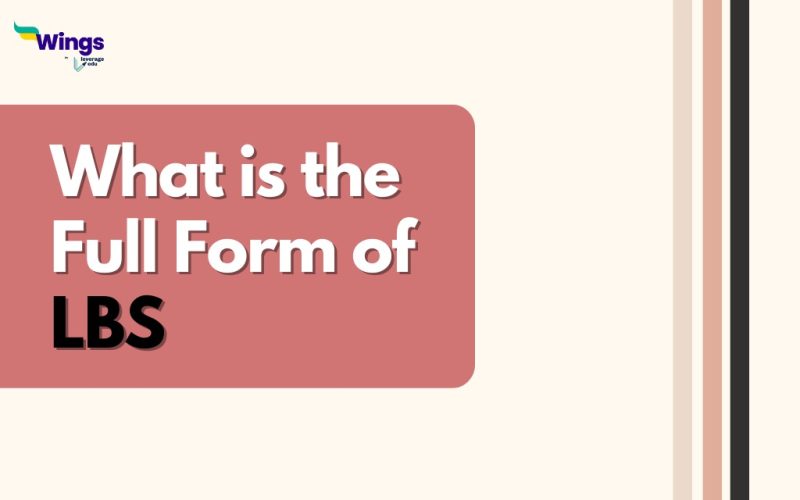If you’ve ever glanced at a weighing scale or read a recipe from another country, you’ve likely seen the term lbs. It is common knowledge that lbs or lb full form is pounds. So, why do we write lbs when we say “pounds”?
This seemingly small abbreviation has a fascinating history rooted in ancient times. While we often use pounds to describe weight, the term lbs is a linguistic and historical remnant that has stuck with us through centuries.
In this article, we’ll dive into the full form of lbs, uncover its origins, and explore why it’s still widely used today. Whether you’re a student, a curious reader, or simply trying to convert a recipe, this is the perfect guide to understand the meaning behind the abbreviation.
Table of Contents
What Is the Full Form of LBS?
The full form of lbs comes from the Latin word Libra, meaning balance or scales. The Romans used libra pondo, which translates to ‘a pound by weight’, as their standard for measuring weight. Over time, the term libra was abbreviated to lb for convenience.
Interestingly, the word pound itself comes from the Latin word pondo. While English adopted pound as the term for weight, lb remained the shorthand, creating a unique linguistic blend that we use today.
How Did This Abbreviation Survive?
Despite the decline of the Roman Empire, their systems of measurement left a lasting mark on many cultures, including Britain. When the imperial system was later formalized, “lb” became the universal abbreviation for pound.
Even though most of the world now uses the metric system, “lbs” persists in English-speaking countries like the United States and the United Kingdom, primarily for weight measurements.
Cultural and Practical Relevance
The use of “lbs” is a testament to how language and tradition shape everyday practices. From weighing groceries to gym equipment, the abbreviation is not only practical but also universally understood.
Why Do We Write lbs but Say Pounds?
The use of lbs for pounds can be traced back to the Roman Empire’s influence on measurement systems. The abbreviation lb gained widespread use in the Middle Ages as trade expanded across Europe. Even when modern English developed, the abbreviation stuck because it was already deeply embedded in commerce and daily life.
The ‘s’ in lbs is added as a simple indication of the plural form, much like adding “s” to other words in English. For example:
- Singular: 1 lb
- Plural: 5 lbs
However, it is important to note that this notation is incorrect. Whether you mean singular as in 1 pound or plural as in 5 pounds, you must use the standard notation which is ‘lb’ without adding an ‘s’.
Metric vs. Imperial System: In modern weight systems, pounds are part of the imperial system, which is predominantly used in the United States and a few other countries. However, the metric system, which uses kilograms and grams, is the global standard. Despite this, pounds (or lb) remain widely recognized in industries and everyday conversations worldwide.
lb vs. Metric Units: A Comparison
The imperial system, which includes pounds, is primarily used in the United States and a few other countries, while most of the world uses the metric system. Let’s look at how pounds stack up against kilograms:
| Pounds (lb) | Kilograms (kg) |
| 1 | 0.45 |
| 5 | 2.27 |
| 10 | 4.54 |
| 50 | 22.68 |
The metric system’s simplicity, where weight is measured in grams and kilograms, has made it a global standard. However, pounds remain a cultural mainstay in specific contexts, from aviation to health and fitness.
Practical Uses of lb in Everyday Life
Even in the age of the metric system, lbs plays a crucial role in many industries and daily activities:
- Health and Fitness: Body weight, gym equipment, and fitness goals are often measured in pounds.
- Cooking and Baking: Recipes, especially from the United States, frequently list ingredients in pounds.
- Commerce: Many goods, from produce to packaged items, are sold by the pound in countries like the U.S.
- Aviation: Cargo and luggage weights are often expressed in pounds.
Pound continues to thrive as a unit of measurement despite global shifts toward metric units.
FAQs About LBS
The abbreviation lb comes from the Latin word libra, reflecting its Roman origins.
It depends on context. The singular form is lb, used for one pound (e.g., “1 lb of flour”). The plural form is “lbs,” used for more than one pound (e.g., “5 lbs of sugar”). However, in formal writing, some people prefer using “lb” for both singular and plural forms to maintain consistency, as is common in scientific or technical contexts.
To convert pounds to kilograms, multiply the weight in pounds by 0.45. For example, 10 lbs × 0.45 = 4.54 kg.
Other Popular Full Forms
Do you use prefer to use abbreviations in your day-to-day life? They are a great way to simplify saying and writing common terms that we might need to repeat often. Other times, they might be a fun way to learn difficult concepts or express the depth and significance of commonly-used words.
Either way, we are obsessed with full forms. We have created a comprehensive list of full forms that covers over 300 of them! Do check them out! If you have any questions on suggestions, we’d love to hear from you in the comments section below.
 One app for all your study abroad needs
One app for all your study abroad needs













